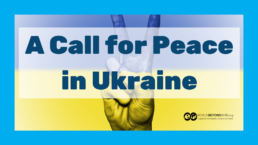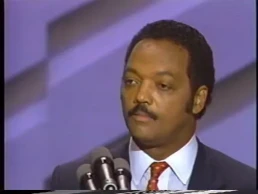Be prepared for the tired old zombie argument that a national issue is not your locality’s business.
By David Swanson, World Beyond War
Passing resolutions through local governments, speaking to national governments, has often been a powerful part of moving public opinion and policy. It’s about time we put it to use for peace in Ukraine, as we have done for peace in other parts of the world and for moving priorities from war to peace.

One of the hallmarks of propaganda is selective outrage. Fox News generally defends the superwealthy (the “job creators”) and their tax cuts, but is outraged by one particular billionaire: Democratic donor George Soros. At MSNBC, there is outrage over rich right-wing donors and Russian oligarchs, but not so much over powerful U.S. oligarchs, especially if they lean Democratic.
Another hallmark of propaganda is selective facts. Fox News cherry-picks video clips and factoids to portray President Biden as a weakling who is captive of his party’s left wing or the Chinese Communist Party, or both. He’s not. On MSNBC, he’s portrayed as a transformative agent of change, and sometimes as the second coming of FDR. He’s not that either.
To credulous news consumers who reside snugly in the bubble of corporate liberal media (from the New York Times and the Washington Post to MSNBC and CNN to public broadcasting), the Biden administration has racked up powerful, even historic, legislative achievements. Which makes it hard for many liberal news consumers to fathom why the general public seems unaware of Biden’s great accomplishments, with his approval rating at 39 percent in the latest CNN poll.
You can contact World BEYOND War to ask for help. It’s a good idea to form a coalition of local groups that agree on the particular topic, even if not on other topics. Then, find out how to speak publicly at local government meetings and how to submit a proposal or get one on the agenda for a vote; or ask council members/ aldermen / supervisors to sponsor it. Next, collect organizations’ or prominent people’s or lots of people’s names on a petition. Hold rallies and/or press conferences. Write op-eds, letters, go on radio, tv. You may need to turn out people for one meeting to propose the idea and for another at which the vote actually happens. Try to fill the room, bring signs to hold up, and pack the public speakers’ list with people ready to speak.
Be prepared for the tired old zombie argument that a national issue is not your locality’s business.
The most common objection to local resolutions on national topics is that it is not a proper role for a locality. This objection is easily refuted. Passing such a resolution is a moment’s work that costs a locality no resources. In the United States, where I am, and similarly in other countries, people are supposed to be directly represented in Congress. Our local and state governments are also supposed to represent us to Congress. A representative in Congress represents over 650,000 people — an impossible task. Most city council members in the United States take an oath of office promising to support the U.S. Constitution. Representing their constituents to higher levels of government is part of how they do that.
Cities and towns routinely and properly send petitions to the U.S. Congress for all kinds of requests. This is allowed under Clause 3, Rule XII, Section 819, of the Rules of the House of Representatives. This clause is routinely used to accept petitions from cities, and memorials from states, all across the United States. The same is established in the Jefferson Manual, the rule book for the House originally written by Thomas Jefferson for the Senate. In 1798, the Virginia State Legislature passed a resolution using the words of Thomas Jefferson condemning federal policies penalizing France. In 1967 a court in California ruled (Farley v. Healey , 67 Cal.2d 325) in favor of citizens’ right to place a referendum on the ballot opposing the Vietnam War, ruling: “As representatives of local communities, board of supervisors and city councils have traditionally made declarations of policy on matters of concern to the community whether or not they had power to effectuate such declarations by binding legislation. Indeed, one of the purposes of local government is to represent its citizens before the Congress, the Legislature, and administrative agencies in matters over which the local government has no power. Even in matters of foreign policy it is not uncommon for local legislative bodies to make their positions known.”
Abolitionists passed local resolutions against U.S. policies on slavery. The anti-apartheid movement did the same, as did the nuclear freeze movement, the movement against the PATRIOT Act, the movement in favor of the Kyoto Protocol (which includes at least 740 cities), etc. This democratic republic has a rich tradition of municipal action on national and international issues. Karen Dolan of Cities for Peace writes: “A prime example of how direct citizen participation through municipal governments has affected both U.S. and world policy is the example of the local divestment campaigns opposing both Apartheid in South Africa and, effectively, the Reagan foreign policy of “constructive engagement” with South Africa. As internal and global pressure was destabilizing the Apartheid government of South Africa, the municipal divestment campaigns in the United States ramped up pressure and helped to push to victory the Comprehensive Anti-Apartheid Act of 1986. This extraordinary accomplishment was achieved despite a Reagan veto and while the Senate was in Republican hands. The pressure felt by national lawmakers from the 14 U.S. states and close to 100 U.S. cities that had divested from South Africa made the critical difference. Within three weeks of the veto override, IBM and General Motors also announced they were withdrawing from South Africa.”
Modify and use this sample resolution.
Whereas the Russian invasion and escalation of the war in Ukraine is a criminal and immoral action that has resulted in nearly a half million dead and injured;
Whereas aiding the people of Ukraine must be the top priority;
Whereas predictions of total victory have come from both sides of this war for over a year and a half, with both sides more quietly acknowledging that there is no end anywhere in sight;
Whereas a total victory would not be a lasting peace, as the defeated side would seek revenge;
Whereas the alternatives to endless war are negotiated compromise or nuclear apocalypse;
Whereas scientists have placed the doomsday clock closer to midnight than ever before;
Whereas a nuclear powerplant in Ukraine, now lacking engineers, is at risk of a Fukushima-style disaster;
Whereas the war is devastating the environment, disrupting grain shipments, and creating millions of refugees;
Whereas the war is impeding global cooperation on climate, poverty, or homelessness;
Whereas humanitarian aid costs a tiny fraction of what military spending costs;
Whereas the majority of the U.S. public, in polling, opposes sending more weapons to Ukraine;
Whereas, according to Ukrainian media, Foreign Affairs, Bloomberg, and Israeli, German, Turkish, and French officials, the U.S. pressured Ukraine to prevent a peace agreement in the early days of the invasion;
Whereas the U.S. and allies have provided vast quantities of free weapons to keep the war going, and Eastern European governments have expressed concern that if the U.S. slows or ends the weapons flow, Ukraine might become willing to negotiate peace;
Whereas the possibility of an agreement is demonstrated by the existence of the Minsk II agreement, which could have been upheld;
Whereas the outlines of an agreement are no mystery, as nearly two years of peace proposals from around the globe almost all include the same elements: removal of all foreign troops, neutrality for Ukraine, autonomy for Crimea and Donbas, demilitarization, and lifting sanctions;
Whereas allowing the people of Crimea and Donbas to determine their own fate is a more democratic act than sending weapons to a war in the name of democracy but against the will of the majority of the U.S. public;
Whereas either side of this war could announce a ceasefire and ask that it be matched, and could announce a willingness to agree to the elements above; and
Whereas a ceasefire is needed for negotiations, an end to the endless weapons supply is needed for a ceasefire, and all three of these things — a ceasefire, negotiations, and an end to weapons shipments — could be very easily abandoned and the killing resumed if they fail;
Therefore, be it resolved, that the City of _________ urges the U.S. government to take all possible steps for a swift ceasefire, serious negotiations for a lasting compromise agreement, and an end to weapons shipments.
Add suggestions for the sample resolution at WorldBeyondWar.org
Recent Posts
U.S. Sent a Rescue Plane For Boat Strike Survivors. It Took 45 Hours To Arrive.
February 17, 2026
Take Action Now In seas that could kill a person within an hour, it took nearly two days for a rescue plane to arrive.By Tomi McCluskey and Nick…
“Keep Hope Alive”: Remembering Rev. Jesse Jackson, Civil Rights Icon Who Twice Ran For President
February 17, 2026
Take Action Now “Our father was a servant leader — not only to our family, but to the oppressed, the voiceless, and the overlooked around the…
The Iranian Trap: Neither Military Action Nor Nuclear Negotiations Can Solve Trump’s (and Israel’s) Conundrum
February 16, 2026
Take Action Now After a failed regime-change strategy and an increasingly risky military buildup, the Trump administration turns back to nuclear…
Suffocating an Island: What the U.S. Blockade Is Doing to Cuba
February 16, 2026
Take Action Now Electric motorcycles are Cuba’s response to the fuel crisis.By Medea Benjamin Marta Jiménez, a hairdresser in Cuba’s eastern city…




